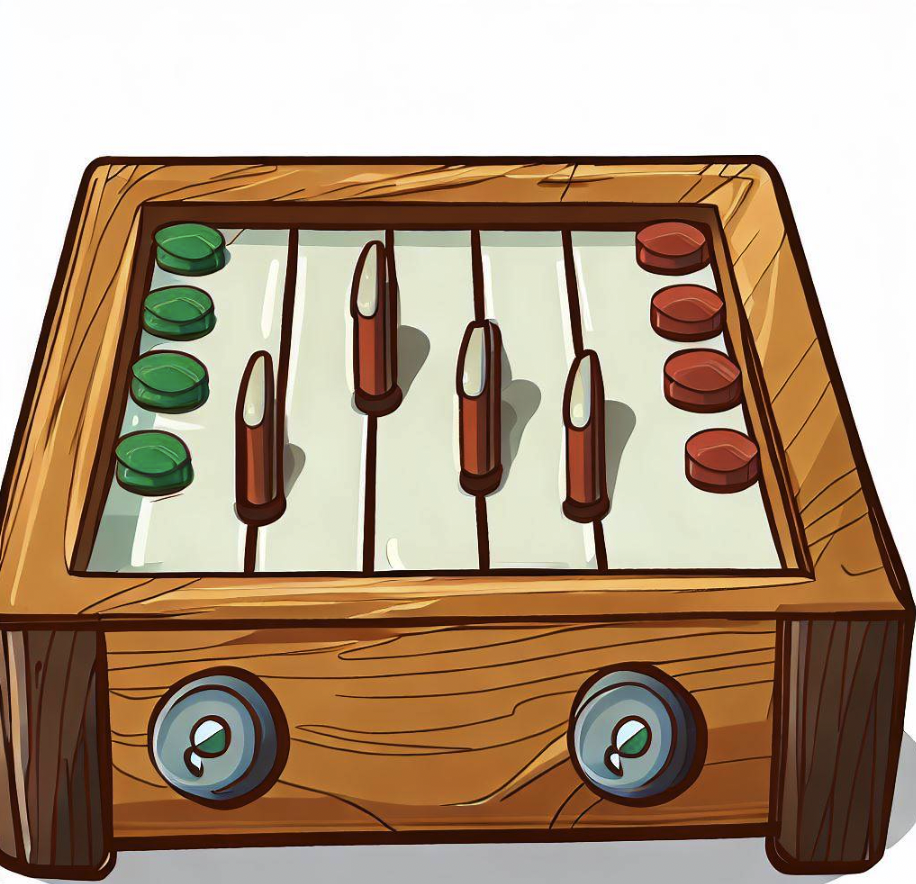Chess and checkers are two of the most popular board games in the world.
While they both fall under the category of abstract strategy games, they differ significantly in terms of complexity, gameplay, and strategic depth.
Below we explore the contrasting characteristics of chess and checkers, shedding light on what makes each game unique and appealing to players of different skill levels.
Table of Contents
Rules and Gameplay
Chess
Chess is a centuries-old game that originated in India and has evolved into a complex and strategic battle between two players.
The game is played on an 8×8 board, with each player starting with 16 pieces, including a king, a queen, two rooks, two knights, two bishops, and eight pawns.
Each piece moves in a specific manner, and the objective is to checkmate the opponent’s king, rendering it unable to move without being captured.
Checkers
Checkers, also known as draughts, is a game that can be traced back to ancient Egypt.
It is played on an 8×8 board as well, but the initial setup only involves 12 pieces per player, usually represented by colored discs.
Players take turns moving their pieces diagonally forward, aiming to either capture all of the opponent’s pieces or block them from making any legal moves.
Chess vs Checkers
Complexity and Strategy
Chess
Chess is renowned for its depth and complexity, often regarded as a game that takes a lifetime to master.
With 16 different types of pieces, each with its own set of movement rules, players must carefully plan their moves, anticipate their opponent’s strategies, and think several moves ahead.
The multitude of possible moves and positions creates an intricate web of possibilities, demanding strategic thinking, tactical maneuvers, and deep positional understanding.
Checkers
In contrast, checkers is a much simpler game in terms of rules and gameplay.
The pieces move in a straightforward manner, with limited options for capturing and jumping over opponent’s pieces.
While checkers requires some strategic thinking, it generally emphasizes immediate tactical decisions rather than long-term planning.
The simplicity of the game makes it more accessible to players of all ages and skill levels, providing a fun and engaging experience without the overwhelming complexity of chess.
Skill and Mastery
Chess
The intricate nature of chess allows for a wide range of skill levels and the potential for high-level competitive play.
Chess tournaments attract some of the brightest minds in the world, with players dedicating their lives to studying openings, tactics, and endgames.
The game’s complexity offers endless opportunities for learning and improvement, ensuring that even the most experienced players continue to refine their skills throughout their chess journey.
Checkers
While checkers may lack the same level of complexity as chess, it still requires a certain level of skill and strategic thinking to succeed.
The game rewards players who can spot patterns, plan ahead, and make optimal moves to gain a positional advantage.
While checkers does not possess the same depth as chess, it offers its own challenges and opportunities for mastery, making it an enjoyable game for those seeking a less demanding but still intellectually stimulating experience.
Conclusion
Chess and checkers represent two distinct approaches to abstract strategy games. Chess captivates players with its intricate rules, vast possibilities, and the never-ending quest for mastery.
It challenges the mind and rewards strategic thinking, offering a deeply engaging experience for those willing to invest time and effort.
On the other hand, checkers provides a simpler yet no less entertaining alternative.
It offers accessibility and immediate gratification, appealing to a broader audience seeking a strategic game that can be enjoyed without extensive study or commitment.
Whether you prefer the complex depths of chess or the straightforward elegance of checkers, both games have their own merits and provide hours of strategic enjoyment.


